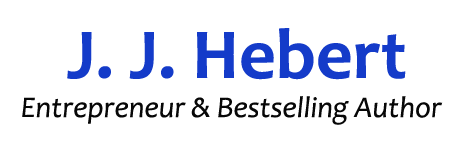Audiobooks have become a popular and effective way for authors to reach beyond their traditional readership and captivate a new audience. Audiobook self-publishing is a great way for authors to extend the reach of their work and take control of the audiobook production process. There are several benefits to audiobook self-publishing, from greater creative control to higher royalties and increased visibility.
Greater Creative Control
Audiobook self-publishing provides authors with complete control over the narration, production and distribution of their books. As compared to traditional publishing, where authors might have limited control over the content of their books and the cover designs, audiobook self-publishing allows authors to create audiobooks that match their artistic vision. They can select the narrator whose voice matches the tone and style of their work and work closely with them to ensure that the final product matches their vision. This level of control is incredibly freeing for authors, who are able to create and publish their work exactly as intended, without having to conform to a publisher’s restrictions and requirements.
Higher Royalties
Another benefit of audiobook self-publishing is the higher royalty rates. Traditional audiobook publishers offer a lower percentage of royalties compared to self-publishing, where authors typically receive a royalty percentage of 40-60% per audiobook sale. In traditional publishing, the author might receive a percentage of the audiobook sales as a royalty, but this typically amounts to only 5-10%. Additionally, in traditional publishing, the audiobook retailer takes a percentage of the sales, leaving the author with a fraction of what the book sells for. Hence, audiobook self-publishing allows the author to generate more revenue per audiobook sale.
Increased Visibility
Audiobook self-publishing allows authors to reach a wider audience. With the advent of the internet, it’s easier to reach readers in different parts of the world with the click of a button. Publishing software such as Audible, Amazon, and Apple Books are popular platforms for authors’ audiobook distribution. Audiobook self-publishing also means that authors retain more control over distribution, which translates into greater visibility for the audiobook. With online platforms gaining increased prominence, self-published audiobooks are more accessible, making it easier for readers to discover new talented authors and authors to seek new markets of audiobook enthusiasts.
Timeliness
Audiobook self-publishing provides authors with the power to get their books to the market as quickly as possible. Traditional publishers might take 6 months, if not over a year, to publish an audiobook, leaving authors in limbo while the publisher works on editing, formatting, and promoting. In contrast, authors who choose to self-publish can enjoy the speed of distribution and release. With audiobook self-publishing platforms such as Audible and Amazon, authors can get their work up for sale and be earning royalties on sales in a matter of days after completing the final product. Letting authors themselves decide how much time to invest in each step of the process, while not compromising the quality of the finished work.
Lower Start-Up Costs
Self-publishing audiobooks can be a cost-effective method for authors to bring their work to the public. With only the actual recording process and distribution costs to consider, authors who self-publish can keep their overall costs low. Self-publishing audiobooks can also be as simple or complex as the author desires, with varying degrees of production quality on the author’s part.
Conclusion
In conclusion, audiobook self-publishing has opened doors for authors seeking to expand their reach, retain control of the creative process, and earn higher royalties. With broader distribution, audiobook enthusiasts are exposed to a greater range of listening experiences. Audiobook self-publishing provides authors with an opportunity to share their stories and ideas in ways that they have always envisioned, widening the narrative and inviting audiences into their world.

